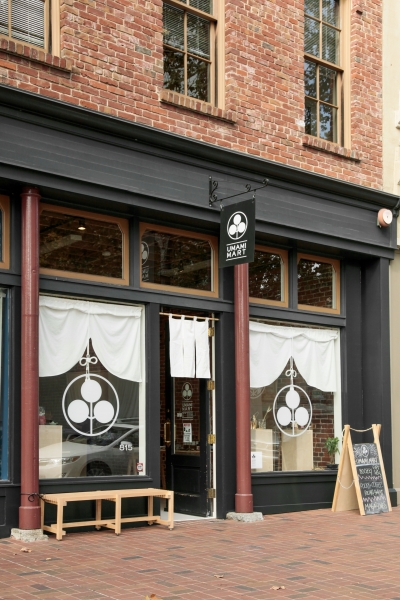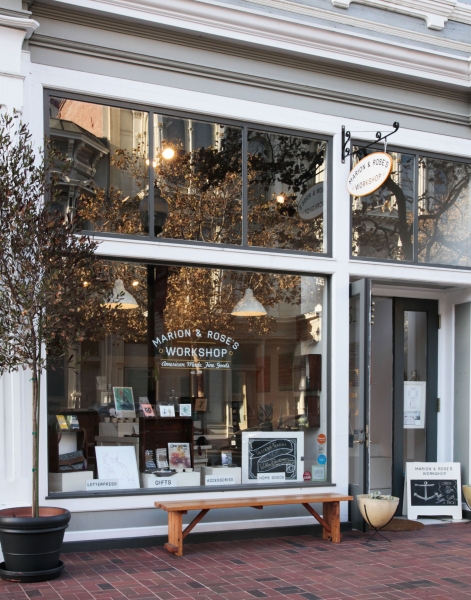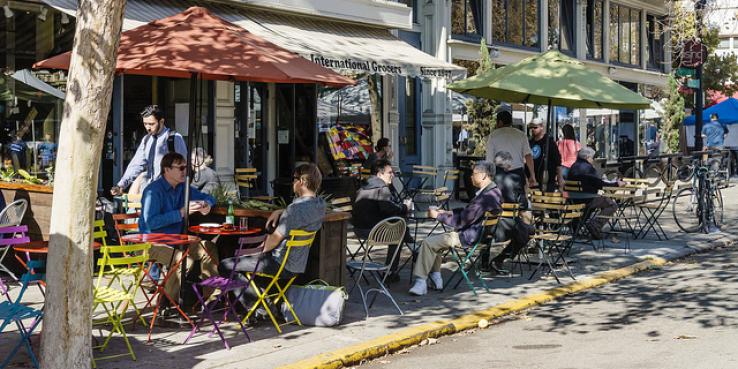It seems everyone’s abuzz about Pop-Ups these days: Those retail businesses that appear suddenly, operate for a day or two—sometimes for weeks—and then disappear.
Pop-ups are temporary by definition, but they can have longer-term impacts on communities. That’s becoming quite evident in Oakland, where pop-ups have proven to be a tool in the work of downtown revitalization.
Like other successful examples of iterative placemaking, pop-ups take smart advantage of underutilized space and also provide appealing flexibility for entrepreneurs, landowners and neighborhoods involved. Property owners see the benefits of new business, which help increase foot traffic to their buildings, encourage a greater mix of uses and make the buildings more recession-proof. First-time entrepreneurs—from hair stylists to bakers, fashion designers to specialty food purveyors—and online retailers can test the market for store locations with temporary pop-up shops before committing to brick-and-mortar businesses. And of course, artists and performers can take advantage of the low- or no-rent temporary space to host exhibitions or theater. he ephemeral nature of the enterprise is ideal.

Umamimart, which began as a blog, opened a store in 2012 in Old Oakland. Photo by Abbey Wilcox.
Given the City of Oakland’s struggle to attract and retrain retail, strategies that can bring life to empty storefronts and draw people to shop downtown are vital. Once home and headquarters to some of the nation’s finest shopping, Oakland has lost nearly all its downtown retail over the last 40 years. Its last major large-format store, Sears, boarded up its building and departed last year. Locally owned and neighborhood retail has also struggled; one consultant to the city estimated in 2008 that Oakland residents make 2/3 of their retail expenditures (over 1 billion in 2008 dollars) outside of the city, due to limited options for goods and even groceries locally. The city has tried many strategies to bring retail back to into its core, including passing a comprehensive retail strategy in 2008, but it’s been the offer of free rent and the temporary "pop-up" ground floor activation strategy, first deployed in Old Oakland that has been most successful in creating destinations, drawing foot-traffic and building a retail district.
The convergence of popups in downtown Oakland is due in no small part to the enterprising efforts of Sarah Filley, an artist and urban designer. Sarah runs PopUpHood, a small-business incubator devoted to revitalizing Oakland neighborhoods, block by block. PopUp Hood has worked by rethinking retail and its role in activating places and attracting people. PopUp Hood has engaged property owners, businesses, city leaders, community partners and developers in a lively local derivation of a global conversation about creative placemaking.
“Having so many artists, makers and designer networks here makes this an amazing city,” says Filley. “Creating a platform to showcase the amount of cultural production with our ‘Pop-Up to Permanent’ program is how we can both share what has been happening here and have a positive economic impact on the community.“
Popup Hood’s first foray into temporary was its collaboration with HUB Oakland. The city offered them rent-free, a 3,000 square foot empty space that used to be an old bank, facing City Hall. Filley went to the HUB and suggested it build its co-working space as a popup. The two organizations shared an office for eight months, and, says Filley, the HUB was able to quickly start hiring and build their brand along with their infrastructure. "They enjoyed a big enough space where they could learn and breathe and really figure out how to design their space. We benefited quite a bit from having them, and they've now became part of the fabric of Oakland,” says Filley. (The Hub’s permanent digs are now on Broadway helping anchor the development of the Hive).
Among the businesses in PopUp Hood’s portfolio are Marion & Rose’s Workshop, a shop which sells only American-made goods and is the first recipient of Kiva’s domestic micro-loan program. On 9th Street, there’s Maple Street Denim, which aims to provide “jeans for everyone.” Sobu, a proprietor of “subversive styling”, started out downtown and recently found permanent space in Rockridge. PopUp Hood worked on a business plan for the woman-owned Manifesta Salon, which envisions their space as a place where members of the community can meet, interact, and share important ideas.

The Exterior of Marion & Rose's Workshop in Old Oakland. Photo by Abbey Wilcox.
Regina’s Door, an upscale vintage boutique on 17th Street sells vintage couture—with a twist. Proprietor Regina Evans uses retail as a way to train and provide stability and clothing to sex traffic survivors. “Her mission,” explains Filley, “is to bring them to the shop and train them in valuable skill, so they have not only a safe place and an income but a safe place to learn to have a job.” Regina is working with other nonprofits to support her shop’s mission and is actively working with the community to reach at-risk youth. For retail to have such an intense mission is really powerful. Oakland struggles with education and safety for its young people, and it’s a community issue. Having shops like Regina’s finding a way to contribute positively is valuable. Regina calls it “fashion with compassion.”
Because PopupHood is a social enterprise, Filley is particularly drawn to retail like Regina’s that builds community work into its model. “It’s an important evolution for what we’ve put into motion with these popups,” she says. “They’re not just temporary in nature; they have deep roots in the community.”
These days, Filley is focusing on a Popup to Permanent initiative and is working on a second iteration of a bill that would help give cities an understanding of the major impact popup businesses could have in the aggregate. Right now, she says, “they barely acknowledge that they exist. Mobile business are working a regional economy; it’s not municipality-based. We need to think regionally about these issues. Having policy support this effort is one of the reasons I am so excited to have SPUR come to Oakland.”
Filley is a great believer in what temporary, and often temp-to-permanent business, contribute to urbanism. “These enterprises do so much for the city and its residents,” she says. “They host great events and workshops. Some businesses may have moved into permanent locations or have moved on, but remain deeply involved in the downtown Oakland retail mix. They’re committed to the community here.”
“The talent of [Popup Hood] applicants,” she concludes, “is matched only by the excitement in Oakland right now.”
